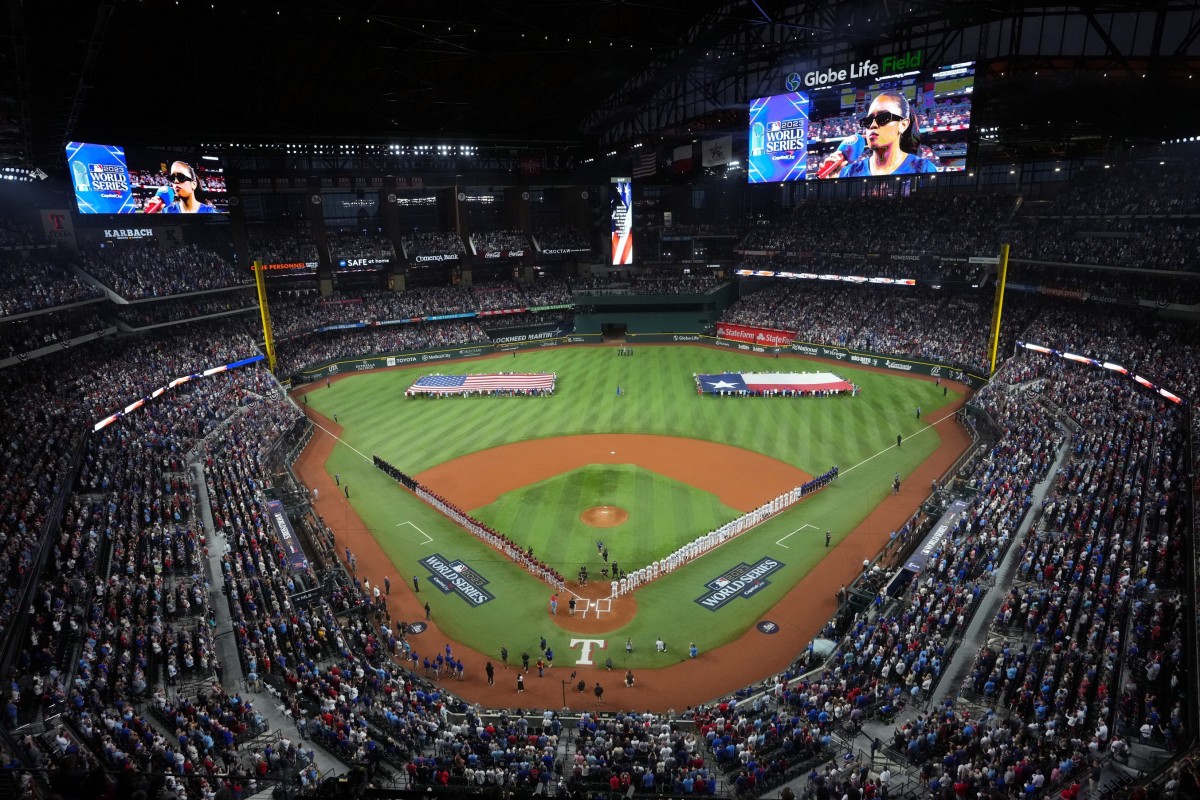Brian Murphy: MLB: Stay out of November and the NBA’s way

The World Series ended last week if you didn’t notice.
Judging by the historically hollow television ratings, almost no one did.
As a communal experience, Major League Baseball’s crowning event is shrinking into a has-been band playing the casino circuit.
I’m in no mood to dump on the grand old game. It’s become a cottage industry in a grievance culture that judges baseball like grandpa reciting what’s in the morning paper.
The game is fine. More than fine.
But in their cutthroat wooing of distracted eyeballs, MLB’s power brokers have set up its television product to fail by pushing the World Series into the cold darkness of November to gag on the fumes of another NBA grand opening.
As if baseball needs to compete head-to-head with another nationally prolific sport 50 years after the NFL steamrolled its stature as America’s game.
The regular season resurrected baseball’s stagnating entertainment value with a long-overdue pitch clock that jolted ballparks with energy because fans and viewers no longer had to mainline caffeine to stay awake between balls in play.

Heck, the local ratings jumped 7% during the regular season, increasing for 16 of the 29 U.S.-based teams, according to ESPN. Minnesota’s hometown Twins were a slow burn until the club finally exorcised its postseason demons and turned Target Field into Bonnaroo.
Yet here we are handwringing again about another Fall Classic that fell flat with a meh matchup between the Texas Rangers and Arizona Diamondbacks.
The Rangers’ franchise-reckoning takedown was the least-watched World Series in recorded TV history, going back to the late ’40s.
More people tuned in when the games were played in the middle of the day on 20-inch black-and-white RCAs between episodes of “The Lone Ranger” and “The Milton Berle Show.”
In a nation of 330 million people, barely 9 million watched Texas’s Game 5 clincher on Fox Sports. Game 3 was the least-watched World Series game ever with 8.13 million viewers going up against the Lions-Raiders matchup on “Monday Night Football.”
Despite avoiding head-to-head competition against the NFL on Sundays, ratings declined 23% from 2022, when the Astros bested the Phillies in six games.
Here were two wild-card teams who finished seventh (Texas) and 11th (Arizona) overall. A smattering of familiar names who hammered and tonged their way into the postseason and climbed over heavy favorites in the Orioles, Astros, Dodgers and Phillies, respectively.
But neither team offered broad appeal across a hyperconnected customer base that is neck deep in every other sport going. The baseball season is closing in on the NBA and NHL marathon, with an expanded playoff format of 12 teams that is diluting the regular season and tempting Old Man Winter’s fate.
There’s no denying Minnesota’s two-game wild-card series sweep of the Toronto Blue Jays electrified the Twin Cities, with Royce Lewis and Pablo Lopez emerging as franchise stars positioned to push the Twins deeper into many more Octobers.
Therein lies the rub.
If the Twins had advanced to face Arizona, they would have hosted Games 1 and 2, and maybe 6 and 7, when overnight temperatures averaged 30 degrees. The cold front that crushed most of the lower 48 that week would have rendered Philadelphia and Baltimore iceboxes, too.
MLB Commissioner Rob Manfred and his greedy Grinches in the owners suites dodged another bullet when the Sun Belt Series toggled between Arlington, Texas and Phoenix.
It’s all so unnecessary.
Yeah, there were a handful of dramatic moments that played out during a frenetic month. But oversaturating the market with 41 games over 29 days makes it impossible for serious fans to keep pace, let alone casual observers.
The best-of-three and best-of-five formats in the wild-card and division series rounds essentially come down to starting pitching and random plays that drain the sweat equity built over 162 games and six months of competition.
Critics say baseball should go all-in and make every series a best-of-seven. More games are not the answer if the bean counters are chasing more gate revenue. Fewer dates are what’s in order.
There is no reason baseball should be played later than Oct. 20-25. The country already is punch drunk on college and pro football just as the NBA launches its increasingly dominant winter product.
Forget about shrinking the regular season back to the 154-game calendar that awarded the eight-team American and National leagues with a World Series berth and championship parade by mid-October. The owners will never leave eight games of revenue on the table.
How about chopping off a week with monthly doubleheaders? First Sunday of every month from April-September. Go ahead. Make ’em day-night split contests so the owners can have their two-gate cake and eat it too.
End the regular season by Sept. 25, crown the pennant winners by Oct. 15 and give the World Series the stage before the gales of November come early.
Compressing the postseason schedule may not draw more national viewers in an increasingly popular regional sport. But there’s no reason baseball fans should have to choose between watching their favorite game and “Monday Night Football” or the NBA on TNT.
Or scraping permafrost off their chins.
